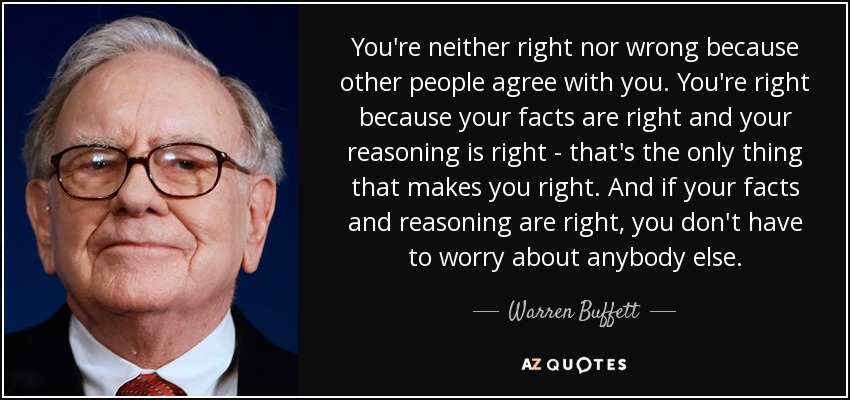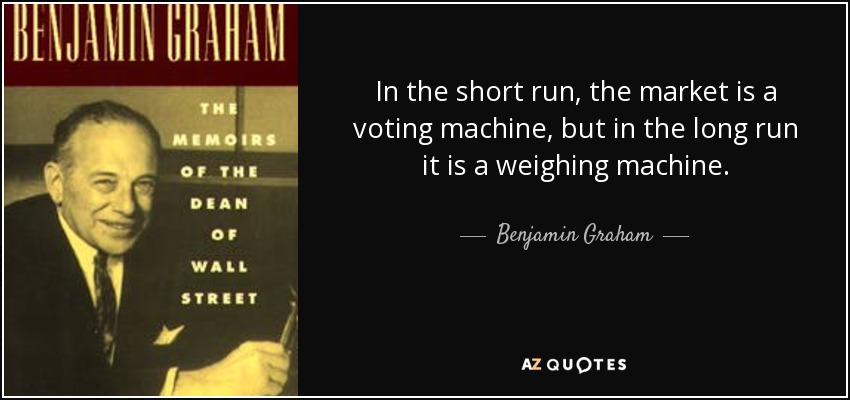
Quoted and translated from Fortune interview with Buffett, November 1974
Contact to invest with Golden River – a rare Vietnamese value investment manager: http://goldenriverinvestment.com/contact/
Mr. Buffett loves to use baseball as an interesting reference to his investment philosophies. But in contrast to baseball – where the batter players have only a small amount, particularly 3 pitches – to swing the bat (the rules of baseball in the clip below), an investor has no limit to his “swinging” opportunity, he can “say no” to hundreds or thousands of different stocks before finding a real good opportunity for himself. However, in reality, investing is not that easy at first glance, because the biggest barrier for an investor is actually his psychology, driven indirectly by huge pressure comes from his superiors, his clients, from the crowd around, shouting every single day…
@Mr. Warren Buffett: “I call investing the greatest business in the world, he says, because you never have to swing. You stand at the plate, the pitcher throws you General Motors at $47! U.S. Steel at $39! and nobody calls a “strike out” on you. There’s no penalty except opportunity lost. All day you wait for the pitch you like, then when the fielders are asleep, you step up and hit it.
But pity the pros at the investment institutions. They’re the victims of impossible “performance” measurements. Says Buffett, continuing his baseball imagery, “It’s like Babe Ruth (greatest batter with many home run record: https://en.wikipedia.org/wiki/Babe_Ruth) at bat with 50,000 fans and the club owner yelling, ‘Swing you bum!’ and some guy is trying to pitch him an intentional walk. They know if they don’t take a swing at the next pitch, the guy will say, “Turn in your uniform.” Buffett claims he set up his partnership to avoid these enormous pressures.
Stay dispassionate and be patient, is Buffett’s message. “You’re dealing with a lot of silly people in the marketplace; it’s like a great big casino and everyone else is boozing. If you stick with Pepsi, you should be okay.” First the crowd is boozy on optimism and buying every new issue in sight. The next moment it is boozy on pessimism, buying gold bars and predicting another Great Depression.
Have faith in your judgment and just that, Buffett advises. Don’t be swayed by every opinion you hear and every suggestion you read. Buffett recalls a favorite saying of Professor Benjamin Graham, the father of modern security analysis and Buffett’s teacher at Columbia Business School: “You are neither right nor wrong because people agree with you. You are right because your reasonings and facts are right.” Another way of saying that wisdom, truth, lie elsewhere than in the moment’s moods.
What good, though, is a bargain if the market never recognizes it as a bargain? What if the stock market never comes back?
Buffett replies: “When I worked for Graham-Newman, I asked Ben Graham, who then was my boss, about that. He shrugged and replied that the market always eventually does. He was right — in the short run it’s a voting machine, in the long run it’s a weighing machine. Today on Wall Street, they say, ‘Yes, it’s cheap, but it’s not going to go up.’ That’s silly. People have been successful investors because they’ve stuck with successful companies. Sooner or later the market mirrors the business.”

(Sources: Fortune interview with Buffett, November 1974)
